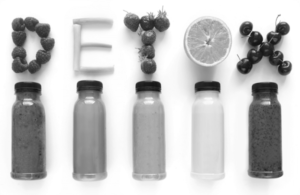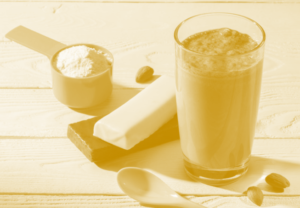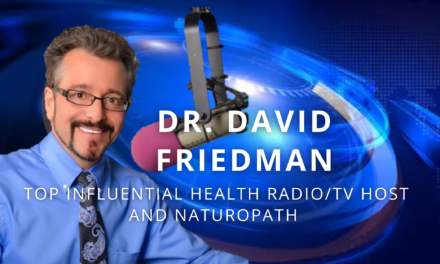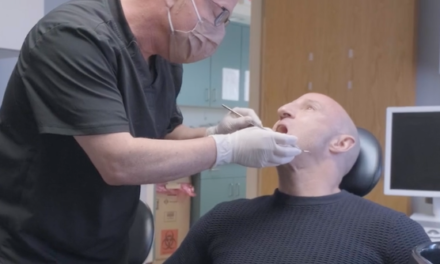Everyone wants a shortcut to a healthier, younger, and slimmer body. This has created a plethora of fad diets, magic supplements, potions, lotions, and weight loss gadgets. Most are a giant waste of money and give people false hope, which can lead to frustration and a lack of self-worth.
Here are six health gimmicks you should avoid:

VEGAN FOOD
Seeing “vegan-certified” is considered synonymous with being healthy; however, some of the most overweight and unhealthy people I know follow a vegan diet. Being a vegan simply means not consuming any food or using products derived from animal sources. So, that means Oreo cookies and donuts fall into the vegan food category. Eating a fattening bowl of pasta for lunch and washing it down with two cokes is considered a vegan meal. Unfortunately, most vegan food contains added dyes, artificial sweeteners, chemical preservatives, and is loaded with inflammatory sugar. While most people consider going “vegan” as being a healthier option, if you want to eat a healthy diet that does not include animals, you’re better off adopting a whole-food, plant-based diet. There is a difference. Whole food plant-based foods come from plants and vegan foods are often manufactured in a plant.

DIET SOFT DRINKS AND ARTIFICIAL SWEETENERS
This health gimmick has been around for ages! Americans spend $67 billion per year on artificial sweeteners. They are being duped into falling for marketing gimmicks like “sugar-free,” “guilt-free,” “no calories,” and “zero carbs.” The word “artificial” means it’s created by chemists in a laboratory. These sugar alternatives are formulated with an array of chemicals that can lead to imbalances in the body. Research shows artificial sweeteners cause fat accumulation in the body!
An 8-year study conducted by the University of Texas found that diet soft drinks containing artificial sweeteners increase the risk of obesity by 41% for every diet soft drink consumed. People who drink two or more diet soft drinks daily have a waist circumference 500 percent greater than those who drink none. Considering the average diet soft drink consumer 3-5 cans per day, this finding is staggering. Research published in Trends in Endocrinology and Metabolism shows artificial sweeteners may increase the risk of weight gain, obesity, metabolic syndrome, and other related problems like Type 2 diabetes.
Instead, opt for natural sugar alternatives like Stevia, Monk Fruit, Xylitol, and Coconut Sugar.

GLUTEN-FREE |
This is currently the biggest health gimmick. People see “gluten-free” on labels and believe it’s a healthier option. The truth is, most gluten-free bread, pasta, cereals, and baked goods have MORE calories than their gluten-containing counterparts. In addition, gluten-free snacks and baked goods are typically higher in refined carbohydrates, sugar, fat, and salt! Gluten-free foods are also lower in healthful nutrients like folate, thiamin, riboflavin, iron, and niacin. This is because most wheat products are enriched with these nutrients and gluten-free flours typically are not.
What people are forgetting is that gluten-containing grains are good for us! Whole-grains offer fiber, healthy plant-based protein, and a variety of phytochemicals that help to improve our health. In May of 2017, the British Medical Journal published research that analyzed 100,000 subjects over a twenty-five-year period. They discovered that participants with the highest intake of gluten had a rate of heart disease significantly lower than those with the lowest intake of gluten. Additional research shows eating whole-grain bread lowers blood sugar surges and reduces colorectal cancer risk by 17 percent.
Unless you have a medical reason for following a gluten-free diet, don’t be duped into believing it’s a healthier way to eat.

JUICE CLEANSES
This is a very popular detox and weight loss gimmick. It’s touted as a quick way to burn fat and remove life-threatening toxins from the gallbladder and liver. People are told to consume only vegetable and fruit juices and skip solid foods for seven to ten days (some health experts advocate doing a juice cleanse for a month!). While juicing is a delicious and refreshing option, it should not be a substitute for eating. We were designed to chew our fruits and vegetables, not drink them. Drinking our produce is not as nutritious as eating it. For example, if you eat an orange you get 30 MG of vitamin C, but if you drink orange juice made with that same orange the fluid will contain only 18 MG of vitamin C. Another example of the marked difference between juicing versus eating can be found when looking at the ORAC value (antioxidants measurement) of cranberries. The difference in ORAC measurement of raw cranberries is 9,090, compared to cranberry juice, which measures only 1,452.
Not eating any solid food and just drinking juice can certainly help you lose weight. However, it’s not sustainable. Once you start eating again, the weight will come right back. In addition, juice cleanses do not “clean the toxins from the liver and gallbladder.” If anything, because juice contains no fiber, the increased sugar spike can harm these organs.

MEAL REPLACEMENT SHAKES AND BARS
We need real food to be healthy, not shakes and bars. The word “supplement” means adding something to our food, not an alternative to eating. While the label may look impressive with that list of synthetic vitamins and minerals, it lacks vital antioxidants, enzymes, and phytonutrients (plant nutrients) that work synergistically with each other. Research shows meal replacement shakes and bars do not elicit comparable appetite and ingestive behavior responses and actually hinder the postprandial decline in hunger which subsequently increases food intake.
In addition, most weight loss/meal replacement shakes, and bars contain sugar or artificial sweeteners, artificial colors, flavors, stabilizers, hydrogenated oils, fillers, and preservatives. While some meal replacement shakes and bars do offer fiber, it’s considerably less than what is found in whole foods like fruits, vegetables, and legumes.

ANTI-AGING WRINKLE-REMOVING CREAMS
One of the biggest health gimmicks out there is the skin creams that promise to make us instantaneously look younger. These products play on people’s fears and insecurities about how they look and feel. Manufacturers pay celebrities to endorse these products and people naively believe they will look like them if they buy these magic creams.
On my radio show, I’ve interviewed many of today’s world-leading dermatologists and plastic surgeons. They all agree, the skincare and cosmetic industry is shady and filled with a plethora of overpromises that underdeliver. If you’re paying hundreds of dollars on creams that are promising to make you look better or younger overnight, you’re probably being duped. While there are some proactive steps you can take to help reduce aging, it usually takes several weeks for a product to exert any positive effects on the skin. You’ll have far better results with keeping a youthful appearance by washing your skin and face daily, applying sunscreen, and using a good moisturizer.

Dr. David Friedman is the author of the award-winning, #1 national best-selling book Food Sanity, How to Eat in a World of Fads and Fiction. He’s a Doctor of Naturopathy, Chiropractic Neurologist, Clinical Nutritionist, Board Certified Alternative Medical Practitioner, and Board Certified in Integrative Medicine. Dr. Friedman is a syndicated television health expert and host of To Your Good Health Radio, which has changed the face of talk radio by incorporating entertainment, shock value, and solutions to everyday health and wellness issues.
Click Here to Buy or View the Print Version of the Magazine!




